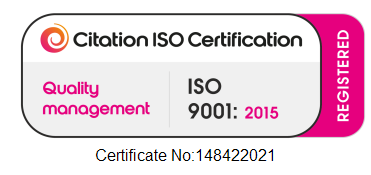In clinical research, the choice between electronic Clinical Outcome Assessments (eCOA) and paper-based trials has become a defining factor in study success. As life sciences embrace digital transformation, selecting the right data collection method can determine both the accuracy and efficiency of trial outcomes.
This article explores how eCOA compares with traditional paper-based methods, highlights industry insights, and introduces how STK Life’s purpose-built eCOA devices are helping researchers achieve higher data quality and compliance worldwide.
The Shift Toward eCOA in Modern Clinical Research
Clinical trials are evolving, and eCOA systems now lead the way in how researchers collect and manage patient data.
eCOA captures patient-reported (PRO), clinician-reported (ClinRO), and observer-reported outcomes (ObsRO) electronically, replacing manual forms with automated workflows that reduce errors and enhance study reliability.
This move toward digital methods is not just a passing trend. It represents a strategic shift driven by the demand for data integrity, patient compliance, and real-time visibility across decentralised and hybrid trial models.
Why More Sponsors Choose eCOA
1. Enhanced Data Quality
eCOA drastically reduces transcription errors and missing entries often found in paper-based records. Studies report 94% compliance for eCOA versus only 11% for paper methods, reflecting stronger reliability in electronic systems.
2. Real-Time Data Access
With eCOA, research teams access live data streams for immediate analysis. This real-time access enables faster decision-making and regulatory responsiveness during ongoing trials.
3. Improved Patient Convenience
Participants can record outcomes from their own devices, reducing the need for clinic visits. This freedom increases engagement and retention—critical for decentralised clinical trials (DCTs).
When Paper-Based Methods Still Make Sense
Despite eCOA’s advantages, paper-based approaches remain viable for certain studies:
- Small Cohorts: For limited participant groups, digital setup costs may not be justified.
- Long-Duration Studies: Paper can be more cost-effective when data entry is infrequent.
- Early-Phase Research: In on-site Phase I trials, where compliance risks are low, paper remains functional.
Comparison: eCOA vs Paper-Based Clinical Trials
| Feature | eCOA | Paper-Based Trials |
|---|---|---|
| Data Quality | High accuracy, minimal transcription errors | Prone to manual and missing data errors |
| Compliance Rate | 94% average | 50% average |
| Real-Time Data Access | Yes | No |
| Patient Convenience | High (mobile access) | Lower (requires site visits) |
| Cost Efficiency | Higher setup, lower long-term cost | Lower setup, higher error cost |
| Regulatory Acceptance | Recommended by FDA & EMA | Accepted but less preferred |
| Training Requirement | Basic staff/patient onboarding | Minimal training |
Frequently Asked Questions
How does eCOA improve patient compliance?
eCOA platforms send automated reminders and allow real-time data entry, reducing recall bias and late submissions. This immediacy increases compliance and produces more accurate datasets for analysis.
What do regulators say about eCOA?
Agencies like the FDA and EMA endorse electronic data collection for its audit traceability and reliability. eCOA aligns with the FDA’s Guidance on Electronic Source Data in Clinical Investigations, ensuring full regulatory transparency.
What are the challenges of implementing eCOA?
Technology adoption can be a hurdle, particularly for sites new to electronic systems. However, modern eCOA smartphones and tablets for clinical trials are user-friendly, remotely managed, and tailored for global network compatibility.
Key Industry Statistics
- Compliance Rates: eCOA – 94% vs Paper – 50%
- Error Reduction: eCOA minimises manual data errors by up to 70%
- Patient Preference: Over 80% of trial participants prefer eCOA platforms
Choosing the Right Method for Your Study
Selecting between eCOA and paper-based trials depends on your study size, duration, and regulatory scope.
While paper still fits smaller or low-risk trials, eCOA offers greater scalability, precision, and patient engagement, making it the preferred model for modern research institutions.
Researchers in fields like oncology and behavioural medicine can also draw inspiration from innovative health optimisation solutions in Madrid, where digital wellness and data-driven monitoring mirror the same patient-centric advancements reshaping clinical research.
eCOA Customised Devices for Clinical Trials
To ensure secure, compliant, and seamless data capture, STK Life provides tailored eCOA hardware designed specifically for global clinical trials.
Key Benefits of STK Life’s eCOA Devices:
- Global Network Compatibility: Reliable performance in multiple regions.
- User-Friendly Interface: Configurable to each trial protocol.
- Remote Device Management (MDM): Simplifies monitoring and updates.
- Long Battery Life: Built for extended research use.
- Comprehensive Support: Includes 5-year warranty and lifetime software support.
For institutions managing sensitive data, secure mobile devices for research data collection and smartphones built for healthcare and clinical environments provide the highest standards of protection and reliability.
By integrating STK Life’s purpose-built eCOA devices, researchers gain the tools necessary to maintain data accuracy, regulatory compliance, and participant satisfaction—core elements of successful trials in 2025.


